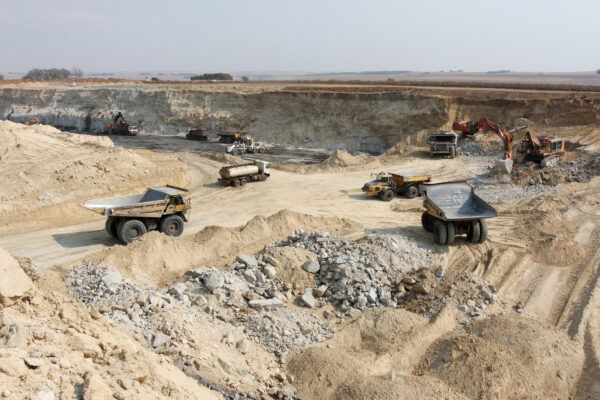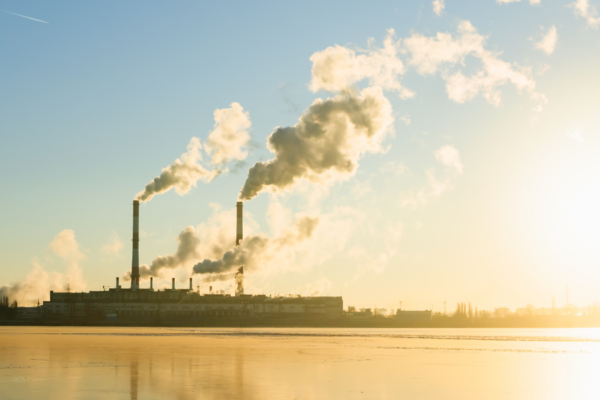There are some global challenges that countries cannot solve on their own, and must rely on, and support each other, to effectively resolve. The Covid-19 pandemic taught us that it is not possible to seal a county, country or region from the virus. Preparing for the next pandemic will require regional and global cooperation, and a focus on equity, as each country’s defences will be strengthened if diagnostic tools, vaccines and other treatments are available in more and more places.
The same is true for measures to clean the air we breathe. Air pollution is a global development challenge and an urgent global health threat. In 2016, outdoor air pollution alone caused an estimated 4.2 million early deaths every year; higher than the WHO’s estimate for deaths from the Covid-19 pandemic in 2020. This figure is also more than the estimated number of annual deaths in 2019 globally attributed to tuberculosis, malaria, and HIV / AIDS combined. Like the virus, the chemicals polluting the air have no respect for national borders; transboundary flows of pollutants occur across the national borders of every country, driven by prevailing winds and weather patterns. This means that the pollution of a country will impact its neighbours and the broader air quality of the world.
When countries adopt bold measures to clean the air, they are protecting the health of their own citizens and the health of citizens in neighbouring countries. New research from the University of Chicago analysed the air quality relationship between Northwest South Korea and China, where the strong westerly winds from China during the Autumn and Winter lead to significantly higher levels of pollution compared to Southeast, South Korea. This pollution has a direct impact on people’s health in South Korea, especially for babies under one, leading to a 0.6 percent increase in mortality for every one microgram per cubic metre increase in transboundary particulate matter pollution (PM2.5). This number translates to an additional 31.2 deaths for every million people annually. The adoption of bold measures to reduce air pollution in China has led to 14.07 microgram per cubic metre drop in particulate pollution in China, and South Korea experienced a 9.63 microgram per cubic metre drop in transboundary particulate pollution from China from 2015 to 2019. This drop led to fewer deaths from transboundary air pollution—approximately 300 fewer deaths for every million people a year and the researchers calculated it saved South Korea $2.62 billion per year. The benefits of China improving its air quality extended beyond its own borders and citizens, highlighting the need for international cooperation to support clean air for everyone.
What is a global public good?
According to the International Monetary Fund, a global public good is “a good which is available to all (‘non excludable’) and that can be enjoyed over and over again… their benefits affect all citizens of the world”. A person’s enjoyment of breathing fresh air in the UK does not reduce the ability of someone in Nigeria to do the same. However, one of the main difficulties with global public goods is that the responsibility to care for and protect these goods are shared by everyone. The International Task Force on Global Public Goods considers this in its definition, noting that ‘for the most part [they] cannot or will not be adequately addressed by individual countries acting alone and are defined through a broad international consensus…”. Global public goods, and their maintenance, are the collective responsibility of all to maintain.
Are governments recognising that investment in measures to promote clean air is a global public good?
While there are some examples of effective, international cooperation to tackle air pollution, notably the Convention on Long-Range Transboundary Air-Pollution (or LRTAP), a focus on the issue is sadly not on the radar at the big global forums. The issue has not been on the agenda as the leaders of the world’s most powerful countries convened for the G7 or the G20 for example, and air pollution did not feature in the Communique at COP27 last year, despite the evidence that investment in measures to tackle air quality also leads to substantial climate benefits. Research shows that accounting for air pollution improvements into climate policies, often by targeting fossil fuel, could make these policies up to 50% more effective.
Perhaps the most stark illustration of this lack of focus on air quality is seen when we examine what governments spend on international action on outdoor air pollution. The Clean Air Fund analyses how governments spend their Official Development Assistance (ODA) budgets on projects directly promoting outdoor air quality. This analysis has found that G7 countries have a combined aid budget of USD $122.1 billion in 2020, yet only three G7 countries appear in the top-ten donors for spending on outdoor air quality, and together they spend just $1.1bn on these projects – 1.37% of their aid budgets in 2020.
The UK, France and Italy, are all outside of the top ten and spent less than USD$10 million each from their collective aid budgets of USD $36.9 billion in 2020 on projects that directly target outdoor air pollution. 93% of the G7’s funding to tackle outdoor air pollution comes from Japan, the country with the strongest commitments to using its aid budget to promote clean air; however much of this funding is directed back into the East Asia region to address trans-boundary pollution, and all of this funding is in the form of loans.
| Ranking Among top 10 donors | International development funder | Air quality funding (average 2019-2020, USD million) | Grant % of air quality funding (average 2019-2020) | % of air quality funding also targeting climate (average 2019-2020) |
| 1 | Japan | 1,008 | 0% | 100% |
| 6 | Germany | 57 | 100% | 7% |
| 9 | United States | 14 | 100% | 11% |
Three steps to drive global action on air quality
While some of the G7’s climate investments will also have co-benefits that include helping to clean the air, the time to tackle this issue directly at the global level is long overdue. We see three opportunities to kick start this effort:
- This year the climate-health nexus will feature more prominently than ever before at the COP 28 conference in the UAE, and this framework provides a great opportunity for countries to finally shine a spotlight on their global actions and responsibilities with respect to air quality.
- Equally, the UN Secretary General’s Climate Ambition Summit in September cannot ignore the strong links between air pollution and climate, and the opportunity available for countries to target both climate action and air quality together. The Secretary General must ensure the Summit is equally ambitious about encouraging bold international cooperation and investment to support low and middle income countries to clean the air.
- Structural conversations about how to reform the global financial architecture are critical to address the neglect of air quality as an issue. Multilateral Development Banks (MDBs) have an important role to play in supporting projects that protect a global public good. Yet to date a sectoral approach to project spending in some MDBs has meant that issues like air quality which require cross-sectoral action are not properly addressed.
The health and climate costs of outdoor air pollution are staggering, the G7 and other world leaders have delayed for long enough – this is the time to ensure that air pollution moves up the political agenda and is addressed with urgency.
Image credit: Unsplash | Redd F

